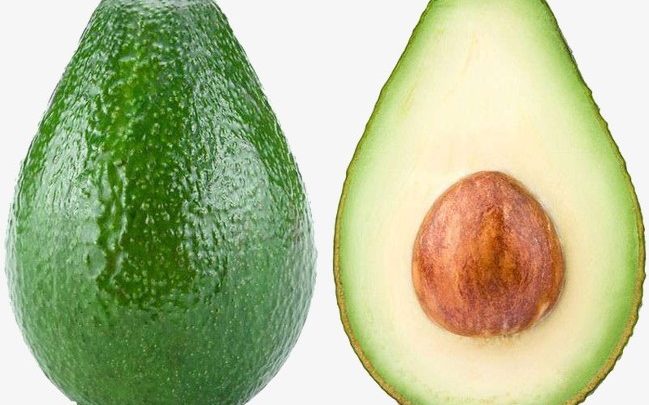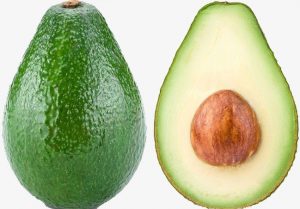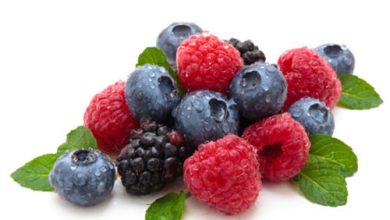
Avocado benefit
Avocado benefit

Avocado
Avocado is a solid, creamy, creamy fruit that grows in warm climates while returning to Mexico and Central America. Avocados are the only fruits that contain large quantities of monounsaturated fats : Monounsaturated fatty acid, and is classified from foods rich in nutrients, providing the body with about 20 types of vitamins and minerals.
Benefits of avocado
Avocado is associated with many health benefits including:
- Reduce the risk of heart disease: Studies have shown that eating avocados increase the levels of good cholesterol and triglyceride, and the availability of large amounts of potassium in the fruit of avocados, it reduces blood pressure levels, all of which reduces the risk of heart disease.
- Contributes to weight loss: Although avocados contain fat in large quantities, it does not cause weight gain and does not hinder the descent at the same time as some people think, but the person feel full for longer periods when taken, reducing the desire to eat for several hours, Which in turn makes avocado an excellent option to add healthy weight loss diets. It also contains large amounts of fiber and low amounts of carbohydrates, not causing high blood sugar.
- Reduce inflammation: Avocado containment of unsaturated monounsaturated fatty acids is associated with reduced inflammation and oxidative resistance when exposed to heat, making avocado oil a healthy and safe option for cooking.
- Increase absorption of nutrients: Some elements need to be combined with fat to be absorbed and used in the body. These include vitamin A, vitamin E, vitamin K, vitamin D, and some antioxidants such as carotenoid. A study showed that the addition of avocado or avocado oil to the salad increased Absorb the antioxidants by 2.5-15 times.
- Maintains eye health: Avocados contain antioxidants that are important for eye health, such as Zeaxanthin and Lutein. Studies have shown that the relationship between these drugs significantly reduces the risk of cataracts and macular degeneration. degeneration, which is common among older people.
- Reduce the risk of cancer: A study of the potential contribution of avocado extract to inhibition of growth of prostate cancer cells, and another study showed the possibility of reducing avocados to the side effects of chemotherapy on lymphocytes.
- Preventing osteoporosis: Half of the avocado provides 25% of the recommended daily value of vitamin K, which is important for bone health. Vitamin K increases calcium absorption and prevents urination.
- Reduces the risk of depression: Folic acid-containing foods such as avocados may help reduce the risk of depression because folate contributes to the prevention of homocysteine accumulation, a substance that interferes with the brain’s blood supply and essential nutrients. The excess amounts of homocysteine With serotonin production, dopamine, and norepinephrine, which regulate mood, sleep, and appetite.
- Promote the health of the digestive system: Avocados contain large amounts of fiber. One avocado contains about 7-9 g of fiber, which prevents constipation, keeps the digestive system healthy, and reduces the risk of colon cancer.
Value of avocado food
Avocados are made up of 73% water, 15% fat, 8.5% carbohydrate (mostly fiber), 2% protein, and 100 g avocado.
Calories 160 calories,
vitamin C 10 mg (11% of the recommended daily value),
vitamin E 2.07 mg (14% of the recommended daily value),
vitamin K 21 micrograms (18% of the recommended daily value),
vitamin B6 0.26 mg (20% of the recommended daily value),
thiamine 0.07 mg (6% of the recommended daily value),
riboflavin 0.13 mg (10% of the recommended daily value),
niacin English: Niacin) 1.74 mg (11% of daily recommended value),
vitamin B5 (pantothenic acid) 1.39 mg (28% of recommended daily value),
Folate 81 Micrograms (20% of the recommended daily value),
choline 14.2 mg (3% of the recommended daily value)
Some warnings
Avocados are safe for most people, but they can cause complications for some people with the following health conditions:
- Avocado Sensitivity: Allergic avocados are rare, but people with latex allergy, or so-called rubber allergies, may react sensitively when eating fruits such as avocados, bananas, and kiwi, Stomach disorders, headaches, colic, and so on.
- Colon irritation: Avocados contain short-chain carbohydrates called FODMAPs, which adversely affect patients with irritable bowel syndrome, resulting in colic, bloating, stomach pain, diarrhea, or constipation.



